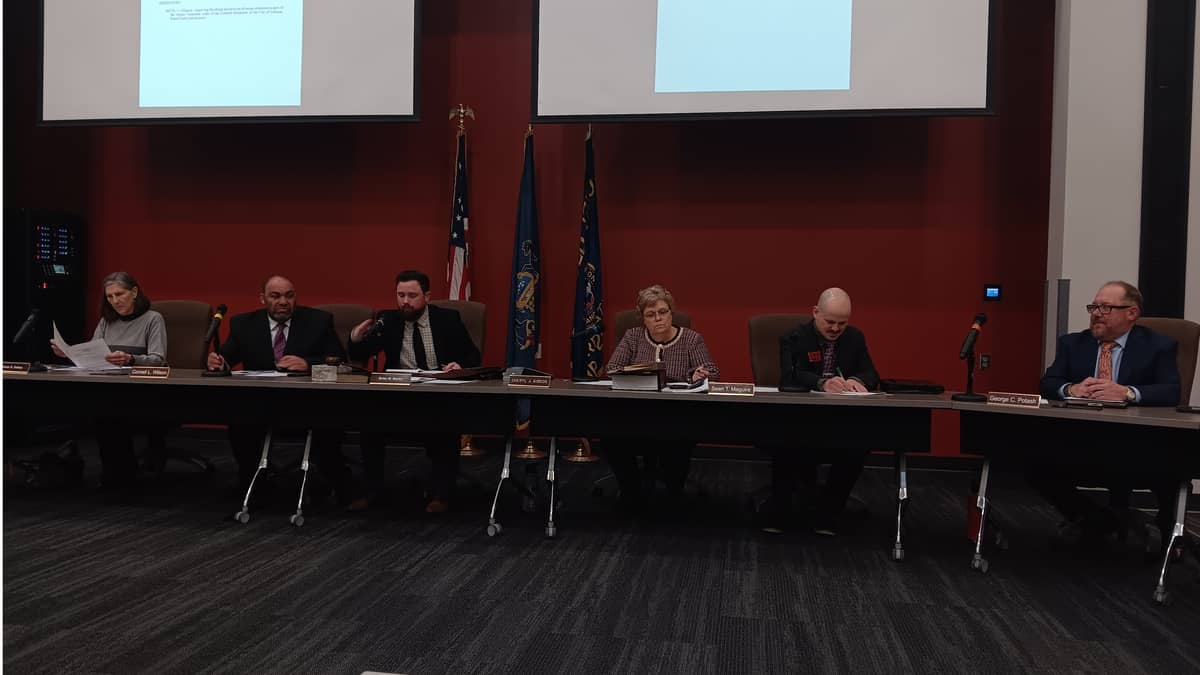This article is shared with LebTown by content partner Spotlight PA.
By Katie Meyer of Spotlight PA
HARRISBURG — The offices in Pennsylvania’s Department of Human Services that help people keep their Medicaid benefits are facing staffing challenges as they prepare to take on a higher workload than at any time in recent memory.
Workers in the system and advocates for health care access fear thousands of children and adults could wrongly lose their coverage as a result.
Like every state, Pennsylvania has just begun reassessing who qualifies for Medicaid because of the “unwinding” of a pandemic-era federal policy that barred states from kicking people off the program for the past three years.
Reenrollment began this month and will continue on a rolling basis. Because the process has been paused for so long, an unusually high number of people are currently on Medicaid in Pennsylvania — nearly 3.7 million compared with the 2.8 million enrolled before the pandemic, an almost 30% increase.
The Shapiro administration estimates that hundreds of thousands of people will be kicked off the program because they no longer meet income or other eligibility requirements. It also warns that hundreds of thousands of qualifying recipients could be kicked off, at least temporarily, due to logistical issues like late paperwork or incorrect financial information.
Separately, the commonwealth plans to change how it reenrolls kids in the Children’s Health Insurance Program, or CHIP, this month, which is also expected to create more work.
“It’s just this compounding effect,” said Patrick Keenan, a policy director for the group Pennsylvania Health Access Network, of the strain that could be put on the benefits system.
“As advocates,” he said, “we’re worried that the numbers of people losing coverage won’t become apparent right away. By this summer, we could be in a troubling situation with many more uninsured than we have today.”
That situation is even more troubling, he added, because the very offices dealing with these reenrollments and process changes are having trouble keeping jobs filled.
A ‘terrifying’ staffing situation
The responsibility for assessing Medicaid recipients’ eligibility and reenrolling people in the program primarily lies with caseworkers for the department’s county assistance offices (CAOs), statewide processing centers, and call centers.
These offices also employ clerical workers whose jobs include scanning important physical documents into DHS systems.
They are some of the key places where DHS is seeing worker shortages.
According to PHAN and Pennsylvania Partnerships for Children, two of the groups that have been meeting regularly with DHS to monitor the Medicaid unwinding process and have expressed concerns about staffing levels, the relevant offices are about 91% staffed statewide.
Those levels are even lower in some big counties. Philadelphia and Pittsburgh, for instance, are about 86% staffed, according to the groups.
“It’s really terrifying to think that about one in six DHS positions in some areas currently aren’t filled as we approach this challenging situation,” PHAN’s Keenan said.
According to Democratic Gov. Josh Shapiro’s recent budget proposal, the total worker complement across all of DHS has shrunk from about 15,300 in 2020 to 13,700 in 2022 — an 11% drop.
“Workforce challenges are affecting nearly every facet of the human services and health care systems,” Brandon Cwalina, a DHS spokesperson, said in an email. “This was a concern before COVID-19, and the pandemic has only exacerbated the greater focus necessary to ensure our workforce can meet the needs of Pennsylvanians.”
DHS has characterized the vacancy rate as only “slightly higher than average” and “in line with what other human services employers have experienced over the course of the pandemic.”
Still, people who work in the offices in charge of reenrollment told Spotlight PA that advocates’ concerns are founded.
If county assistance offices get backed up, logistical problems can pile up and lead to people missing deadlines to turn in their paperwork through no fault of their own, and being locked out of their benefits. Though Medicaid reenrollments are just beginning, one DHS worker told Spotlight PA there’s already strain on the system.
“People are getting their requests for documents after [they’re] due. They’re getting their renewal packets after [they’re] due or not at all. There’s problems all over the state with that,” the worker said.
The worker, who requested anonymity in order to talk candidly about their job conditions, is one of the commonwealth’s many income maintenance caseworkers tasked with helping people enroll in and renew benefits.
They work in one of DHS’ statewide processing centers, which they said has for months served primarily as a call center instead of assisting with enrollment because of staffing issues elsewhere in the system.
“It’s only anecdotal but today alone, I had two different callers [who] had submitted their renewals weeks in advance. Not even like near the due date — these were like, model clients keeping up with their paperwork,” the worker said, referencing Supplemental Nutrition Assistance Program, or SNAP, benefits in both cases. Both callers ended up losing access to their benefits. The worker guesses it was because the relevant caseworkers were backed up.
Others with knowledge of DHS operations corroborated this characterization of the offices’ current staffing and capacity. In mid-February, a group of eight advocacy organizations that have been working closely with DHS sent Acting Secretary Val Arkoosh a letter laying out their concerns.
Calling the task ahead of DHS “unprecedented,” they noted that federal researchers have estimated that three out of every four children who lose coverage during Medicaid redetermination will still be eligible.
“We remain very concerned about the enormous administrative workload the County Assistance Offices (CAOs) will face when redetermining eligibility for this large volume of cases while resuming regular operations after 3 years, and how that is likely to translate into individuals losing coverage, though remaining eligible,” the groups wrote.
Advocates have also argued that vacancy rates alone don’t totally capture the issues DHS is facing.
Though the department was still sending out reenrollment packets during the pandemic and workers aren’t totally out of practice with the process, Keenan said that things will be very different for caseworkers once they’re actually dealing with people who could lose benefits and need to appeal.
“During the pandemic, many CAO staff retired,” Keenan said. “That means that many of the workers are new to the role and inexperienced. On top of that, they’re likely already flooded with work since so many positions remain unfilled.”

What can DHS do?
The Department of Human Services is also about to make a big change to the way it operates CHIP — a change that advocates say should be delayed.
Pennsylvania families that use CHIP are used to renewing and adjusting their kids’ medical coverage through one of 10 health insurers that contract with the state to provide coverage. But starting in April, the state is shifting those administrative tasks to DHS offices — the same offices dealing with Medicaid reenrollment and staffing shortages.
The change, made necessary by a decision at the federal level, has been years in the making. The state initially planned to implement it in 2017, but delayed it.
The group of advocates argues making the change now means even more work and unfamiliarity for workers. The anonymous worker in a DHS processing center said staff are getting trained for new procedures and concerns about added workload are real in these offices.
“Everybody is also freaking out about how they’ve decided to load us up with more work,” the person said, noting it’s a big topic of conversation in union Facebook groups. “It’s not that they don’t want to do the work, they just already have a ton of work.”
DHS defended the change as necessary, and said the state is prepared to make it.
“Delaying the transition further involves extensive system changes which may risk the ability to make sure that children on Medicaid can enroll seamlessly into alternative forms of coverage should it be necessary,” Arkoosh said in her response to the advocates.
In a statement, Cwalina said planning for the transition has been underway “for nearly a decade” and that changing course now “would negatively impact the overall system enhancements for the unwinding.”
There is at least one fundamental change that advocacy groups said DHS could make to mitigate its compounding challenges: more aggressively conduct what is known as passive, or “ex parte” Medicaid renewals.
This kind of renewal uses information already in state systems to automatically determine if a person is eligible for Medicaid coverage, without any action on the part of a state worker and without the recipient submitting new paperwork. It’s designed to lessen the administrative burden on states, and also reduce the risk of people losing Medical coverage for logistical reasons unrelated to their eligibility.
Federal Medicaid regulations already require states to try to make these automatic determinations, but their effectiveness at actually doing so varies widely.
While Pennsylvania is one of 43 states that conducts ex parte renewals and has a system that is considered “mostly automated” as opposed to primarily manual or a mix, fewer than 25% of its renewals are actually conducted automatically. Twenty-seven states have higher percentages of ex parte renewals.
In their letter, the health access advocates claimed Pennsylvania’s ex parte renewal rate is actually even worse than most publicly available data show.
“Pennsylvania’s computer system currently excludes the vast majority of cases from this automated renewal process, notably cases where the family is getting both Medicaid and SNAP, resulting in only about 4% of Medicaid cases being renewed automatically,” they wrote.
Arkoosh addressed this complaint in her letter too, saying that DHS “recognizes the value of increasing the use of automatic renewals to reduce the number of people who need to complete the process themselves,” and that the commonwealth already conducts them “in as many cases as possible.”
She added that DHS is currently trying to “identify areas of improvement” and plans to put them in place “expeditiously.” Cwalina said in a statement that DHS is specifically working on “system enhancements” designed to allow for more ex parte case processing and that updates are scheduled for September of this year.
Then, there are staffing issues, which DHS maintains are pervasive throughout government offices as well as the private sector.
Cwalina said that Shapiro has already made at least one change that the state thinks could help with hiring — getting rid of college degree requirements for most state jobs.
SEIU 668, the union that represents DHS caseworkers, is about to enter contract renegotiations with the commonwealth. Steve Catanese, the SEIU 668 president, said it is “imperative that the commonwealth meets this moment.”
It can do so, he said, “by providing its workforce with the tools needed to handle these work burdens and by providing improved economic incentives that will retain quality staff in a way that’s needed now more than ever.”
WHILE YOU’RE HERE… If you learned something from this story, pay it forward and become a member of Spotlight PA so someone else can in the future at spotlightpa.org/donate. Spotlight PA is funded by foundations and readers like you who are committed to accountability journalism that gets results.

























